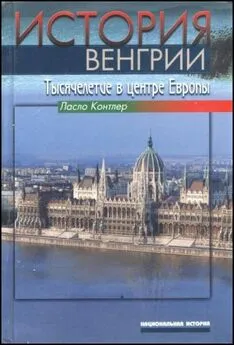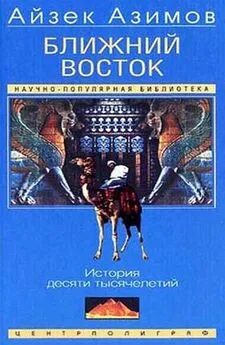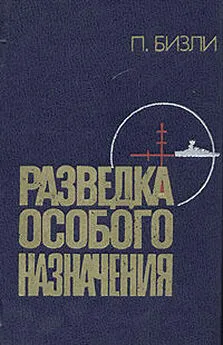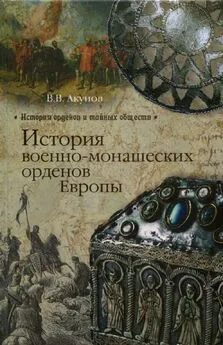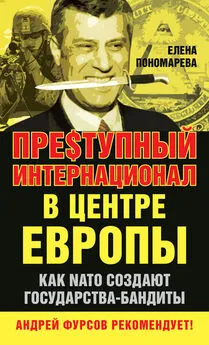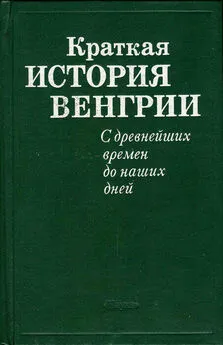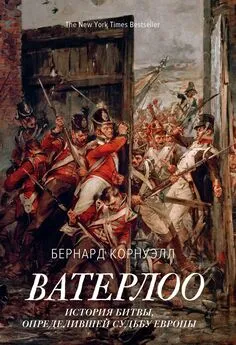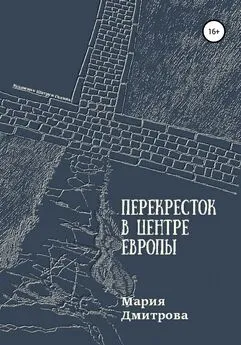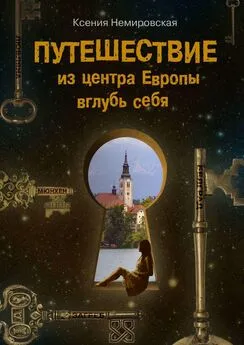Ласло КОНТЛЕР - История Венгрии. Тысячелетие в центре Европы
- Название:История Венгрии. Тысячелетие в центре Европы
- Автор:
- Жанр:
- Издательство:Весь мир
- Год:2002
- Город:М.
- ISBN:ISBN 5-7777-0129-0
- Рейтинг:
- Избранное:Добавить в избранное
-
Отзывы:
-
Ваша оценка:
Ласло КОНТЛЕР - История Венгрии. Тысячелетие в центре Европы краткое содержание
Книга известного венгерского историка Ласло Контлера охватывает тысячелетний период истории Венгрии. Живое и увлекательное повествование о важнейших событиях в политической, экономической и культурной жизни страны построено таким образом, чтобы читатель получил представление о национальной истории Венгрии как едином процессе, несмотря на присущие ему противоречия и разрывы. Книга носит концептуальный характер, отличается глубиной оценок и отсутствием стереотипов и упрощений, показывает истинную роль Венгрии в европейской истории.
Издание хорошо иллюстрировано[1], снабжено именным и географическим указателями.
История Венгрии. Тысячелетие в центре Европы - читать онлайн бесплатно полную версию (весь текст целиком)
Интервал:
Закладка:
34. Vajay, Szabolcs, Der Eintritt des ungarischen Stämmebundes in die europäische Geschichte (Mainz, 1968).
Позднее Средневековье
35. Bak, János, Königtum und Stände in Ungarn im 14.–16. Jahrhundert (Wiesbaden, 1973).
36. Bak, János and Király, Béla (eds.), From Hunyadi to Rákóczi: War and Society in Medieval and Early Modern Hungary (Brooklyn, 1982). /631/
37. Domonkos, Leslie S., The Political and Cultural History of Hungary in the Age of Matthias Corvinus (New York, 1966).
38. Fügedi, Erik, Kings, Bishops, Nobles and Burghers in Medieval Hungary (London, 1986).
39. Fügedi, Erik, The Elefánthy. The Hungarian Nobleman and His Kindred (Budapest, 1998).
40. Gerevich, László, The Art of Buda and Pest in the Middle Ages (Budapest, 1971).
41. Held, Joseph, Hunyadi, Legend and Reality (Boulder, 1985).
42. Mályusz, Elemér, Kaiser Sigismund in Ungarn 1387–1437 (Budapest, 1990).
43. Nehring, Karl, Matthias Corvinus, Kaiser Friedrich III. und das Reich (München, 1989).
44. Vardy, S. В., Grosschmid, Géza and Domonkos, Leslie S. (eds.), Louis the Great, King of Hungary and Poland (Boulder, 1986).
Начало новой истории
45. Balázs, Eva H. and Köpeczi, Béla (eds.), Noblesse française, noblesse hongroise. XV е–XIX еsiècles (Budapest and Paris, 1981).
46. Daniel, David P., 'The Fifteen Years War and the Protestant Response to Habsburg Absolutism', East Central Europe/L’Europe du Centre-Est I–II (1981), pp. 38–51. /631/
37. Fekete, Lajos, Buda and Pest under Turkish Rule (Budapest, 1976).
38. Kosáry, Dominic, 'Gabriel Bethlen. Transylvania in the 17th Century', The Slavonic and East European Review , XVII (1938), pp. 162–74.
39. Molnár, Andrea, Fürst Stephan Bocskay als Staatsmann und Persönlichkeit (Munich, 1983).
40. Perjés, Géza, The Fall of the Medieval Kingdom of Hungary: Mohács 1526–Buda 1541 (Boulder, 1989).
41. Slottman, William В., Ferenc Rákóczi II and the Great Powers (Boulder, 1997).
42. Sugar, Peter F., Southeastern Europe under Ottoman Rule, 1354–1804 (Seattle – London, 1977).
43. Székely, György and Fügedi, Erik (eds.), La Renaissance et la Réformation en Pologne et en Hongrie (Budapest, 1963).
От Просвещения к революции
44. Balázs, Eva H., Hungary and the Habsburgs 1765–1800. An Experiment in Enlightened Absolutism (Budapest, 1997).
45. Balázs, Eva H., Hammermayer, R. and Wagner, H. (eds.), Beförderer der Aufklärung in Mittel- und Osteuropa (Berlin, 1979).
46. Barany, George, Stephen Széchenyi and the Awakening of Hungarian Nationalism 1791–1841 (Princeton, 1968).
47. Barany, George, ‘Hoping against Hope: The Enlightened Age in Hungary”, American Historical Review LXXIX (1971), pp. 319–57.
48. Benda, Kálmán, ‘Probleme des Josephinismus und des Jakobinertums in der Habsburgermonarchie’, Südost-Forschungen (1966), 38–72.
49. Blanning, T.C.W., Joseph II (Cambridge, 1994).
50. Bödy, Paul, Joseph Eötvös and the Modernization of Hungary, 1840–1870 (Boulder, 1985).
51. Bona, Gábor (ed.), The Hungarian Revolution and War for Independence, 1848–1849. A Military History (Boulder, 1997).
52. Csáky, Moritz, Von der Aufklärung zum Liberalismus, Studien zum Frühliberalismus in Ungarn (Vienna, 1981).
53. Csáky, Moritz, ‘Joseph II’s Hungarian Land Survey’, English Historical Review (1991), 611–34.
54. Deák, István, The Lawful Revolution. Louis Kossuth and the Hungarians, 1848–1849 (New York, 1979).
55. Dickson, P.G.M., Government and Finance under Maria Theresia 1740–1780 , 2 vols. (Oxford, 1987).
56. Evans, R.J.W., ‘Maria Theresa and Hungary’, in H. M. Scott (ed.), Enlightened Absolutism: Reform and Reformers in Later Eighteenth-Century Europe (London, 1990).
57. Haselsteiner, Horst, Joseph II und die Komitate Ungarns (Vienna, Cologna and Graz, 1983).
58. Kecskeméti, Charles, La Hongrie et la réformisme libéral. Problèmes politiques et sociaux (1790–1848) (Rome, 1989).
59. Király, Béla К., Hungary in the Late Eighteenth Century. The Decline of Enlightened Despotism (New York and London, 1969).
60. Kosáry, Domokos, Culture and Society in Eighteenth-Century Hungary (Budapest, 1987). /632/
61. Köpeczi, Béla, Hongrois et Français. De Louis XIV à la révolution française (Budapest, 1983).
62. Macartney, Carlile A., 'Hungary', in The European Nobility in the Eighteenth Century , ed. A. Godwin (London, 1953).
63. Marczali, Henrik, Hungary in the Eighteenth Century (Cambridge, 1910).
64. Roider, Karl A., Maria Theresa (Englewood, N.J., 1973).
65. Silagi, Denis, Ungarn und die geheime Mitarbeiterkreis Kaiser Leopolds II (Munich, 1961).
66. Sugar, Peter F., ‘The Influence of the Enlightenment and the French Revolution in Eighteenth-Century Hungary’, Journal of Central European Affairs , XVII (1958), 331–55.
Век неоабсолютизма и дуализма
67. Вагапу, George, ‘Ungarns Verwaltung, 1848–1918’, in Wandruszka, Adam and Urbanitsch, Peter (eds.), Die Habsburgermonarchie , vol. VI (Vienna, 1987), 304–468.
68. Berend, T. Iván and Ránki, György, Hungary: A Century of Economic Development (New York, 1974).
69. Csáky, Moritz, Dei Kulturkampf in Ungam. Die kirchenpolitische Gesetzgebung der Jahre 1894/95 (Graz, 1967).
70. Fischer, Rolf, Entwicklungsstufen des Antisemitismus in Ungarn 1867–1939 (München, 1988).
71. Frank, Tibor, The British Image of Hungary 1865–1870 (Budapest, 1976).
72. Gerõ, András, Modem Hungarian Society in the Making. The Unfinished Experience (Budapest, London and New York, 1993).
73. Gerõ, András, The Hungarian Parliament (1867–1918). A Mirage of Power (Boulder, 1997).
74. Gluck, Mary, Georg Lukacs and His Generation, 1910–1918 (Cambridge, Mass., 1985).
75. Glatz, Ferenc (ed.), Hungarians and their Neighbours in Modem Times, 1867–1950 (Boulder, 1995).
76. Hanák, Péter, Ungarn in der Donaumonarchie (Vienna and Budapest, 1984).
77. Hanák, Péter, The Garden and the Workhop. Essays on the Cultural History of Vienna and Budapest (Princeton, 1998).
78. Hanák, Péter, (ed.), Die nationale Frage in der Österreich-Ungarischen Monarchie, 1900–1918 (Budapest, 1966).
79. Hoensch, Jörg К., Geschichte Ungarns 1867–1983 (Stuttgart, Berlin, Cologne, Mainz, 1984), published in English as A History of Modem Hungary 1867–1986 (London and New York, 1988).
80. Janos, Andrew C., The Politics of Backwardness in Hungary, 1825–1945 (Pinceton, 1982).
81. Jászi, Oszkár, The Dissolution of the Habsburg Monarchy (Chicago, 1929).
82. Király, Béla K., Ferenc Deák (Boston, 1976).
83. Macartney, Carlile A., The Habsburg Empire, 1790–1918 (London, 1968).
84. Mazsu, János, The Social History of the Hungarian Intelligentsia in the 'Long Nineteenth Century, 1825–1914 (Boulder, 1996).
85. McCagg, William O., Jewish Nobles and Geniuses in Modem Hungary (Boulder, 1972).
86. Puskás, Julianna, From Hungary to the United States (1880–1914) (Budapest, 1982).
87. Szabad, György, Hungarian Political Trends Between the Revolution and the Compromise (1849–1867). /633/
88. Vermes, Gábor, István Tisza. The Liberal Vision and Conservative Statecraft of a Magyar Nationalist (NewYork, 1985).
89. Walter, Friedrich, Die Nationalitätenfrage im alten Ungarn (Munich, 1959).
Межвоенный период и Вторая мировая война
90. Baross, Gábor, Hungary and Hitler (Astor, Fla., 1970).
91. Borbándi, Gyula, Der ungarische Populismus (Mainz, 1976).
92. Borsányi, György, The Life of a Communist Revolutionary, Béla Kun (Boulder, 1993).
93. Braham, Randolph L., The Politics of Genocide: The Holocaust in Hungary , 2 vols. (New York, 1981, revised edn. 1994).
94. Deák, Francis . Hungary at the Paris Peace Conference: The Diplomatic History of the Treaty of Trianon (New York, 1942).
95. Dreisziger, Nándor, Hungary's Way to World War II (Astor Park, Fla., 1968).
96. Dreisziger, Nándor, (ed.), Hungary in the Age of Total War (1938–1948) (New York, 1998).
97. Eby, Cecil В., Hungary at War. Civilians and Soldiers in World War II (University Park, PA, 1998).
98. Fenyõ, Marion D., Hitler, Horthy and Hungary. German-Hungarian Relations 1941–1944 (New Haven, Conn., 1972).
99. Katzburg, Nathaniel, Hungary and the Jews. Policy and Legislation 1920–1943 (Jerusalem, 1981).
100. Kertész, Stephen D., Diplomacy in a Whirlpool: Hungary between Nazi Germany and Soviet Russia (Notre Dame, 1953).
101. Kovács, Mária, Liberal Professions & Illiberal Politics (Washington D.C. and New York, 1994).
102. Lackó, Miklós, Arrow-Cross Men, National Socialists, 1934–1944 (Budapest, 1969).
103. Macartney, Carlile A., October Fifteenth. A History of Modern Hungary 1929–1945 , 2 vols. (Edinburgh, 1956).
104. Mócsy, István, The Effects of World War I. The Uprooted: Hungarian Refugees and Their Impact on Hungary's Domestic Politics (Boulder, 1983).
105. Nagy, Zsuzsa L., The Liberal Opposition in Hungary 1919–1945 (Budapest, 1983).
106. Ormos, Mária, From Padua to the Trianon, 1918–1920 (Budapest-Boulder, 1990).
107. Péteri, György, The Effects of World War I. Communism in Hungary, 1919 (Boulder, 1984).
108. Ránki, György, Economy and Foreign Policy. The Struggle of the Great Powers for Hegemony in the Danube Valley 1919–1939 (Budapest, 1982).
109. Romsics, Ignác, István Bethlen: A Great Conservative Statesman of Hungary, 1874–1946 (Boulder, 1995).
110. Sakmyster, Thomas, Hungary, the Great Powers and the Danubian Crisis, 1936–1939 (Athens, Ga., 1981).
111. Sakmyster, Thomas, Hungary's Admiral on Horseback. Miklós Horthy, 1918–1944 (New York, 1994).
112. Tõkés, Rudolf L., Béla Kun and the Hungarian Soviet Republic. The Origins and Role of the Communist Party of Hungary in the Revolutions of 1918–1919 (Stanford, 1967).
Венгрия при социализме
113. Aczél, Tamás and Méray, Tibor, The Revolt of the Mind. A Case History of Intellectual Resistance behind the Iron Curtain (New York, 1960). /634/
114. Berend, T. Iván, The Hungarian Economic Reform, 1953–1988 (Cambridge, 1990).
115. Felkay, Andrew, Hungary and the USSR, 1956-1900 (New York, 1989).
116. Grothusen, Klaus-Detlev (ed.), Ungarn. Südosteuropa-Handbuch , vol. 5 (Göttingen, 1987).
117. Gati, Charles, Hungary and the Soviet Bloc (Durham, 1986).
118. Hainbuch, Friedrich, Kirche und Staat in Ungarn nach dem Zweiten Weltkrieg (Munich, 1982).
Читать дальшеИнтервал:
Закладка:
